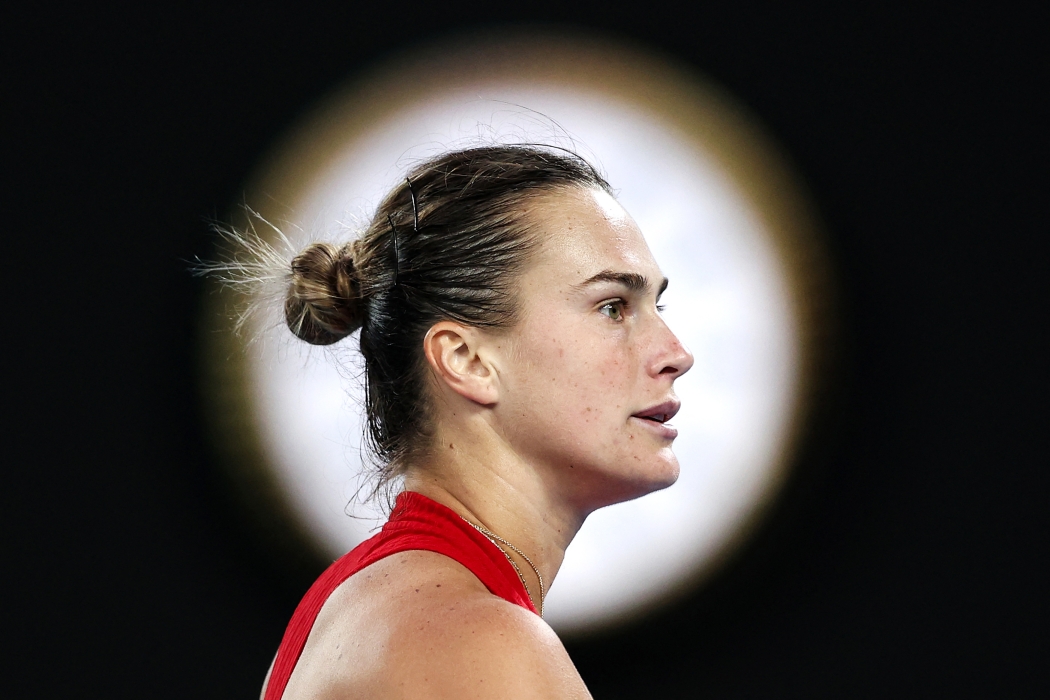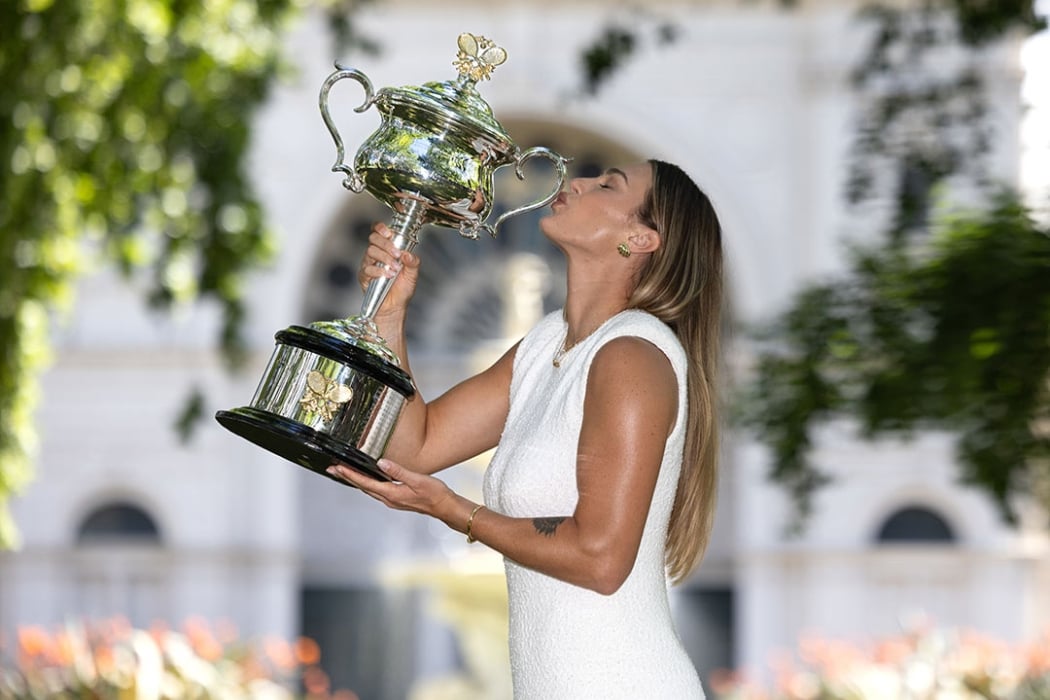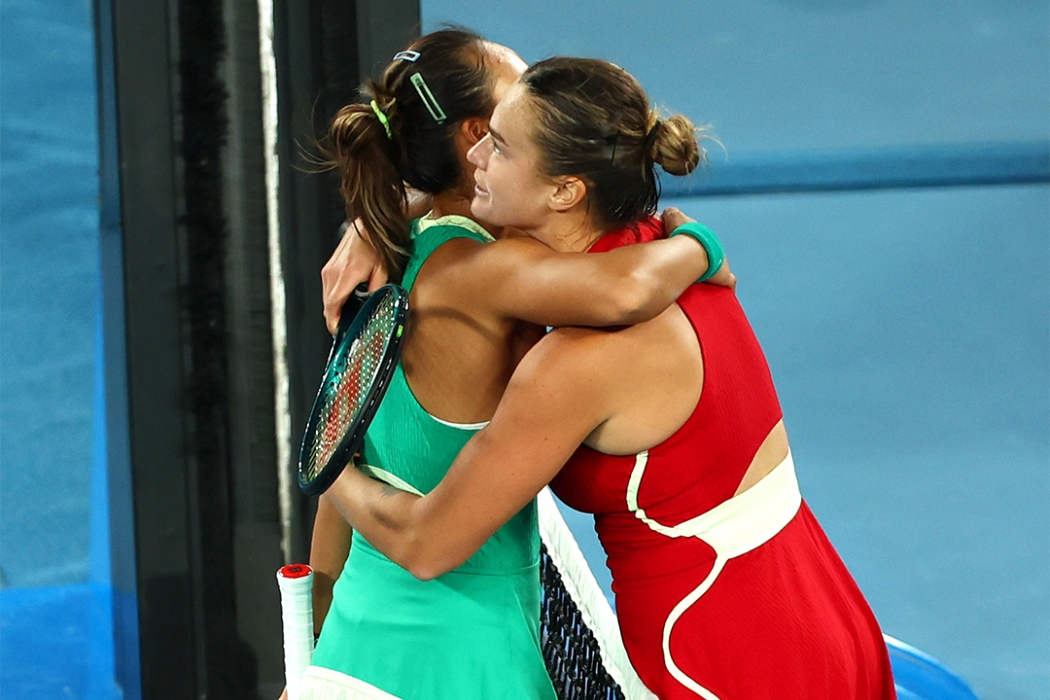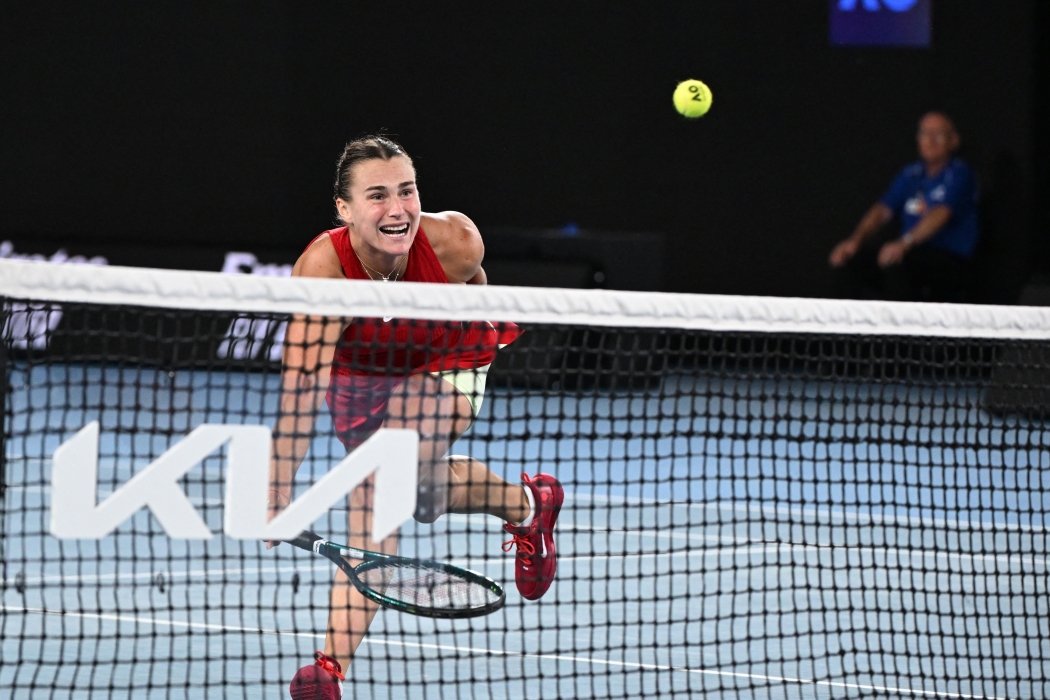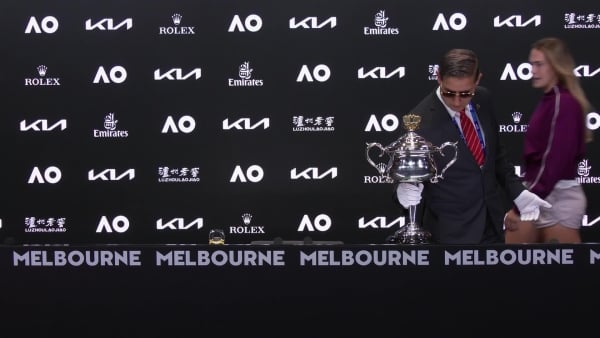Aryna Sabalenka is the Australian Open champion once again after producing one of the best performances seen at a Grand Slam in recent memory.
With her 6-3 6-2 triumph over Zheng Qinwen, Sabalenka became only the second player in the past 20 years to win the women’s singles final without dropping serve – matching Serena Williams’ emphatic win over Maria Sharapova in 2007.

But it was not only in Saturday’s showpiece where Sabalenka produced statistical dominance.
Sabalenka’s exploits throughout the past two weeks have taken her game to fresh heights. The records she is now breaking are reaching an elite level, and the data from AO 2024 suggests it is a huge ask for any female player to stop her if she is playing at the peak of her powers on a hard court.
MORE: AO 2024 women's singles draw
The first player since compatriot Victoria Azarenka 11 years ago to win back-to-back titles, Sabalenka has also become just the second woman to win her first two Grand Slam titles at AO.
This event has proven so hard to defend in recent years, highlighting how impressive Sabalenka’s feat is. Her victory ended a four-year run with different champions. Had Zheng won, it would have been the first time since 1981 that five straight tournaments had different winners, but instead Sabalenka has firmly established herself as the player to beat at the AO for many years to come.
A victorious campaign for Sabalenka saw her win every match in straight sets. She only had to play one tiebreak, and in six of her seven matches she did not drop more than three games in a single set.
Sabalenka has therefore matched some of the great AO campaigns this century. Lindasy Davenport in 2000, Sharapova’s stunning success in 2008 after her heavy loss to Serena a year earlier, Serena herself triumphing in 2017 and Ashleigh Barty’s championship in 2022 are the other occasions when AO winners did not drop a set.
BONUS: Download your copy of the Australian Open 2024 Official Program
It took Sabalenka an average of just 70 minutes per match to reach glory. How does that rank against previous AO champions? Since 2016, only Barty’s powerful triumph on home soil (65 minutes per match) has been recorded in quicker fashion.
Sabalenka’s run compares favourably to elite tournaments from Serena in 2017 and Naomi Osaka in 2021 (both 77 minutes), as well as being a vast improvement on her own triumph in 2023 (95 minutes).
Most staggeringly, Sabalenka achieved her dominant wins despite having an incredibly difficult path to victory.
She had to beat three top-15 opponents in a major for the first time in her career and, even though the fourth-round win came against an unseeded rival, comeback queen Amanda Anisimova had lit up the first week in Melbourne and entered the contest in fine form.
It took a stunning serving performance for Sabalenka to see off the American – she racked up six aces to just one double fault, won 87 per cent of her first-serve points (her tournament high) and afforded just one break-point opportunity to Anisimova, which she duly saved.
Meanwhile, the battling win Sabalenka earned over US Open winner Coco Gauff in the semifinals, a performance that included 33 winners, represented the highest-ranked opponent she has ever beaten at a Grand Slam.
Already consistent at the majors – Sabalenka is the first player to reach six consecutive semis before turning 26 since Serena in 2003 – she is now also becoming a prolific winner.
With 12 hard-court tournament wins since 2018, Sabalenka is unrivalled on the WTA Tour, while Serena at Wimbledon (2015-16) and Iga Swiatek at the French Open (2022-23) are the only others to win the same major in consecutive seasons during the past decade.
Zheng had delighted fans at Melbourne Park with her run to the final, but facing Sabalenka was a clear step up. The champion has now appeared in 26 career finals and, since 2017 when Sabalenka reached her first, has played in more showpiece matches than anyone else.
This is clearly her favourite surface – Sabalenka has now played in 18 Tour-level finals on hard court, putting her four clear of any other player in that statistical category since 2017.
While Zheng will be devastated to fall short, she has enjoyed a fortnight that has propelled her to stardom. As for Sabalenka, already a two-time champion at the age of 25, few would bet against her breaking many more AO records in the years ahead.
Indeed, she may already be daring to dream about the prospect of a famous three-peat in 2025, an accomplishment which has not been achieved in the women’s singles this century.
